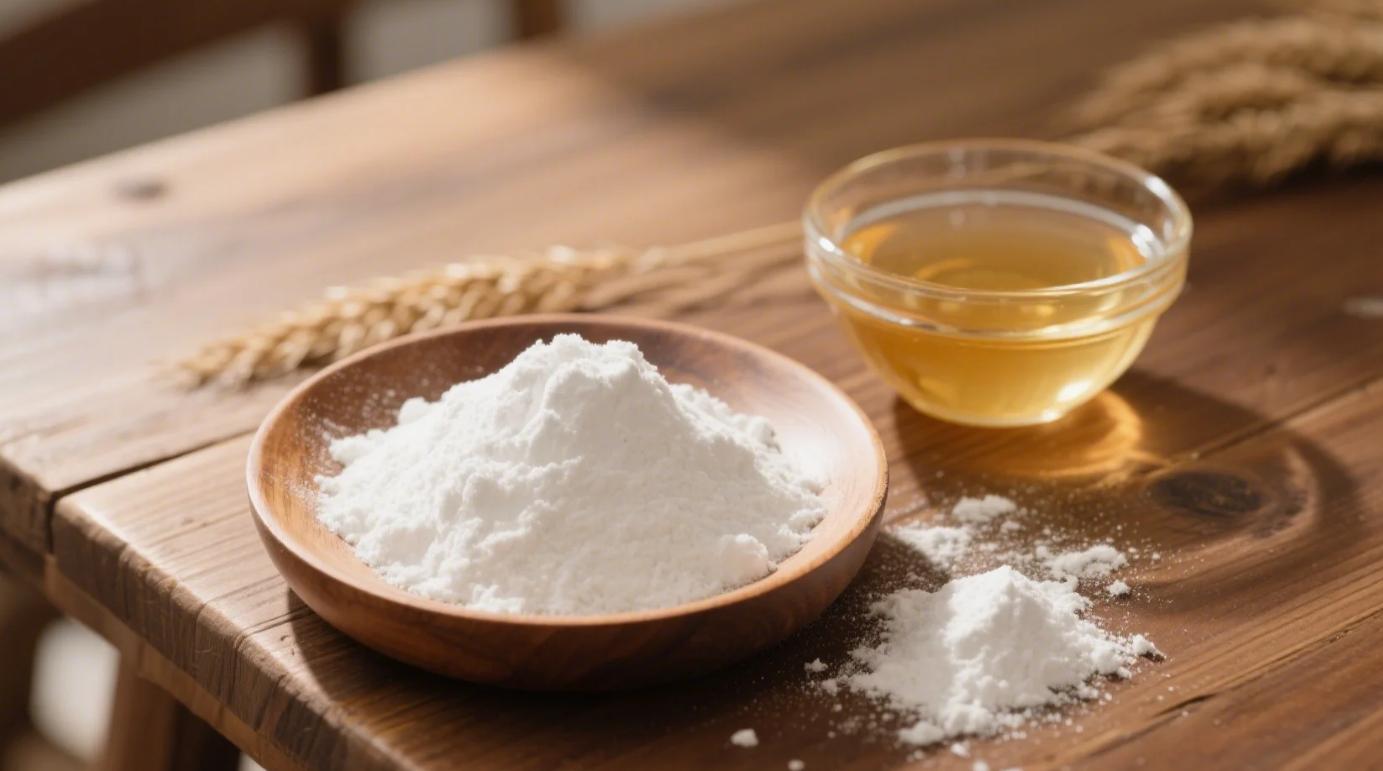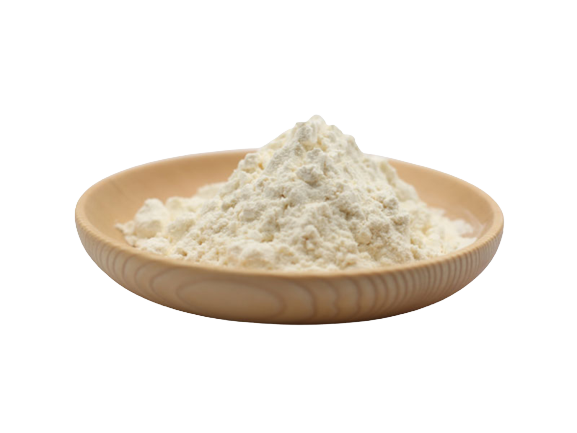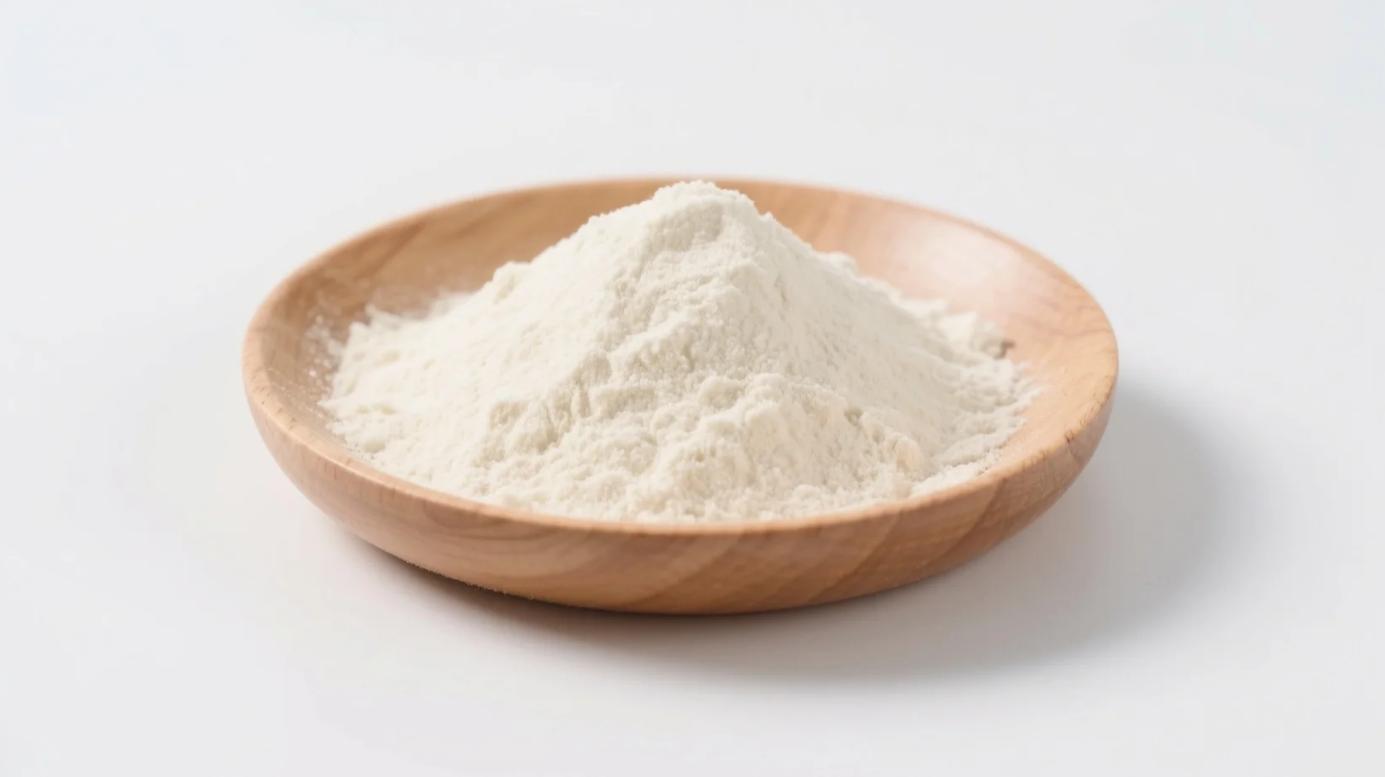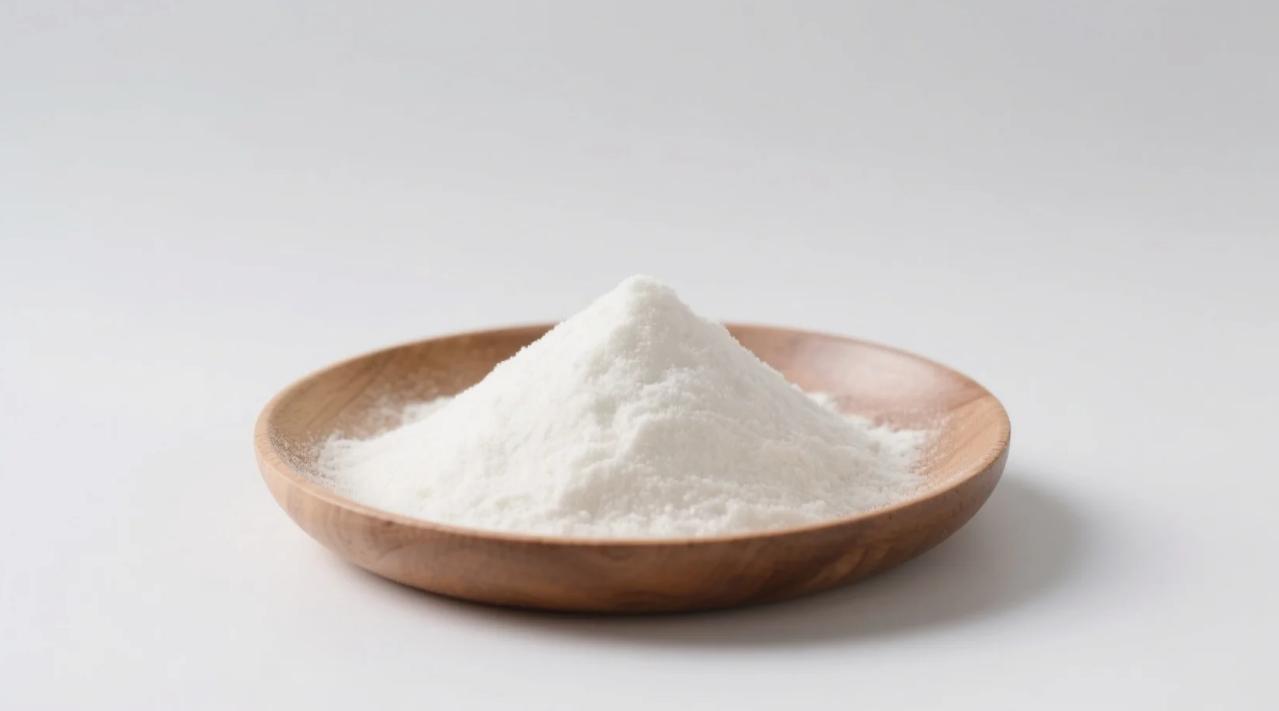The Rise of IMO: A Fiber Revolution
In the bustling world of functional nutrition, organic IMO powder (Isomalto-oligosaccharides) and IMO syrup are emerging as game-changers among water-soluble dietary fibers. Derived from non-GMO tapioca via enzymatic conversion, these prebiotic marvels outperform staples like FOS (Fructo-oligosaccharides), GOS (Galacto-oligosaccharides), and Inulin with their unique blend of science-backed benefits and culinary versatility. Let’s explore why IMO is becoming the gold standard for gut health and clean-label innovation.

1. Prebiotic Prowess: IMO vs. Traditional Fibers
Targeted Microbial Fuel
While FOS and GOS selectively feed Bifidobacteria, IMO’s α-(1,6) glycosidic bonds nourish a broader spectrum of probiotics, including Lactobacillus and Bacteroides. Studies show IMO increases short-chain fatty acid (SCFA) production by 30% compared to Resistant Dextrin, enhancing gut barrier function and immune resilience.
Digestive Tolerance
Unlike Inulin, which often causes bloating at >5g doses, IMO’s gradual fermentation minimizes gas production. Its low FODMAP profile makes it ideal for IBS sufferers—a stark contrast to the notorious “cooling effect” of Erythritol or the laxative risks of Maltitol.
Metabolic Harmony
With a glycemic index (GI) of 34.66, IMO stabilizes blood sugar better than Acacia Fiber (GI 40) and Soluble Corn Fiber (GI 50). Its 2.1 kcal/g calorie count also trumps Polydextrose (1 kcal/g) in balancing energy and weight management.
2. Functional Flexibility: Beyond Gut Health
Heat-Stable Performance
IMO syrup excels in high-temperature applications like baking and brewing, retaining prebiotic integrity up to 160°C—a feat impossible for Psyllium Husk or Guar Gum, which degrade at 120°C.
Texture & Moisture Mastery
In protein bars and gluten-free baked goods, IMO powder mimics sugar’s texture without Inulin’s chalkiness or Oligofructose’s hygroscopic drawbacks. Its humectant properties extend shelf life by 25% vs. Arabinogalactan.
Savory-Sweet Balance
Unlike Stevia’s bitter aftertaste or Monk Fruit’s fruity notes, IMO syrup adds a subtle malt-like sweetness to fermented foods like miso and kombucha, enhancing umami without overpowering flavors.
3. Organic Certification & Sustainability
IMO’s Ethical Edge:
- Regenerative Farming: Sourced from organic tapioca farms practicing crop rotation, IMO production uses 30% less water than FOS (derived from sugarcane).
- Zero-Waste Circularity: Spent tapioca starch is upcycled into biodegradable packaging, contrasting with Inulin’s reliance on energy-intensive chicory processing.
- Transparency Guaranteed: Brands like NFBC leverage blockchain to trace IMO from soil to shelf—a rarity in the often-opaque Resistant Starch market.
4. Head-to-Head: IMO vs. Popular Fibers
| Fiber | Key Strength | IMO’s Advantage |
|---|---|---|
| FOS Powder | Boosts Bifidobacteria | Broader probiotic support + heat stability |
| GOS Syrup | Mimics human milk oligosaccharides | Lower calorie + savory compatibility |
| Inulin Powder | High calcium absorption | Better digestive tolerance + neutral taste |
| Resistant Dextrin | Soluble in cold beverages | Prebiotic potency + clean-label simplicity |
5. Innovating Industries: From Food to Pharma
- Functional Beverages: IMO syrup dissolves instantly in cold brews, avoiding Polydextrose’s sedimentation—ideal for keto-friendly electrolyte drinks.
- Pharma-Grade Supplements: As a binder in vegan probiotic capsules, IMO powder outperforms Hydroxypropyl Methylcellulose (HPMC) in dissolution speed.
- Beauty Biome Care: IMO’s humectant properties replace Glycerin in clean skincare serums, locking moisture without stickiness.
The Fiber of the Future
Organic IMO powder and syrup aren’t just ingredients—they’re a manifesto for smarter nutrition. By harmonizing ancestral wisdom (tapioca’s ancient roots) with biotech precision (enzyme-driven malting), IMO delivers what FOS, GOS, and Inulin cannot: a trifecta of gut health, culinary adaptability, and planetary stewardship.
Related Products
Organic Monk Fruit Extract Powder
Zero-Calorie Natural Sweetener for Clean-Label Food, Beverage & Supplement Applications
Organic Resistant Dextrin
Low-Calorie Prebiotic Fiber for Digestive Health & Clean-Label Formulations
Organic Isomaltoligosaccharides
Prebiotic Fiber for Functional Foods, Supplements & Digestive Health Products


